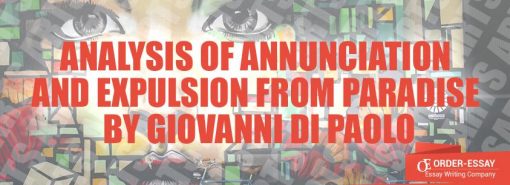
Music has always been the sphere of gift and inspiration. Numerous composers and artists put their ideas into various music forms depending on their life experience and music they work with. In some historical periods like Medieval, Renaissance and Baroque musical eras there was a tendency of music patronage. Patrons were mainly churches and monarchs at that time. We all know that music is something non-material and highly aesthetical that can easily be influenced by emotions of any kind. Such emotions can be brought to life or disrupted by patrons as well. That gives people reason to wonder whether a structure or a person that has no connection to music art but assists a musician by way of patronage can influence the musician’s work in any way. Thus, there are two categories of people, whose opinion towards patronage in music differs greatly. The ones who consider patronage harmful to the nature of music believe it has predominantly negative impact on this kind of art. The others disagree, believing patronage to be a substantial help for music art in terms of finance and protection. Let us explore both opinions towards this issue, concerning substantial arguments from both opposing sides.
From the one hand people that believe in substantial assistance of patrons consider patronage to be a factor, providing life conditions for musician’s activity and performance. Their attitude towards the issue is based on numerous historical precedents connected with the Church. As Fenlon describes the period of Renaissance “church authorities could offer encouragements in composition and performance, providing composers with livelihood and supplying them with the performing medium necessary for their art, the liturgical choir” (Fenlon). Thus, if we are talking about large music forms and not folk music, the Churches’ assistance was extremely substantial. Talented composers from poor families had neither any opportunity for a personal choir, a church organ, or a proper place to earn for living. The Churches’ patronage was solving both issues quite successfully. Among authorities, supporting various kinds of arts including music, one can name the Medici family, Gregory the Great, Augustine, Benedictine monks and so on (Erlandson). Thus, numerous patrons of the earlier centuries greatly assisted in the development of arts and new music forms.
From the other hand, there are some factors that make patronage interfere the process of creation of a music piece. People, who hold this opinion, provide mainly modern reality evidence than those from the Medieval or Baroque era. Today’s music is mainly connected with the patronage of recording labels. There is a group of artists that agree to share or give the rights on their music pieces to a label, but the number of artists choosing their individual way is increasing as well. They explain their aspirations for freedom as rejecting from being involved into money making and not music. Various agreements while signing a contract with a label put different constraints on artists. The limitations can be various, starting from the limit of their rights to perform and share their material and finishing with deadlines for the new albums and songs. Thus, a musician transforms into a conveyor producing music to be sold. In such conditions, it is impossible for an artist to be guided only by aesthetic feelings, that can cause troubles. For example, one of the unnamed producers rejects working with any music supporting brands on the basis of its “shadowy” structure, motives and “unknown rules that govern whether you are in or out of it” (Muggs). As for pop music stars, the predominant part of them do not care about the issue, but when it comes to classical music, the commercial supporting organizations tend to reject to fill this sphere themselves. As one of the members of such supportive group, Rolex, explains it: “we found there is already a very structured set of ways of connecting and mentoring talent” (Muggs). Thus, some of the critics characterize modern pop music to be degrading. They say it lacks new ideas because it has become an industry conveyor, where new stars got born and forgotten every year. That is why modern patronage by recording companies can be the source of serious trouble, which greatly interfere the individual style of the musician.
From the facts presented, one may conclude that modern patronage in music is quite different from its image form the past. From the one hand classical music has everything it requires to preserve old form but remain fresh revealing new talents. Various public grants support composers and performers of classical music without interfering the image of their art. Modern popular styles in their turn greatly depend on recording labels that place numerous constraints in various spheres of artistic activity. Thus, modern patronage by great companies turns music into an industry, neglecting its primary aim of sharing and appealing to aesthetic feelings. That is why some of modern popular artists reject the proposals from recording companies and search their own ways of production and sharing their music with the audience.











